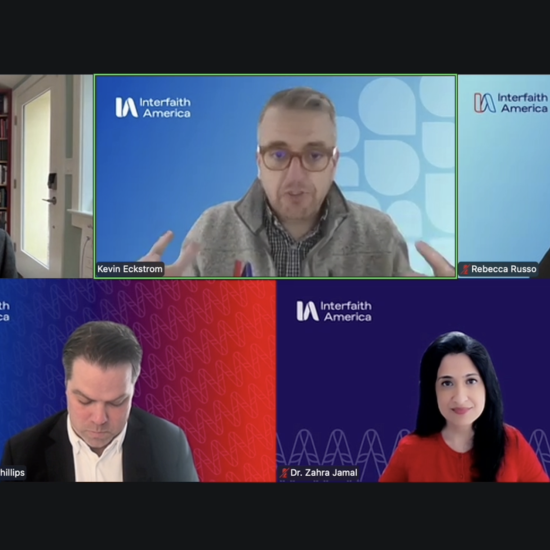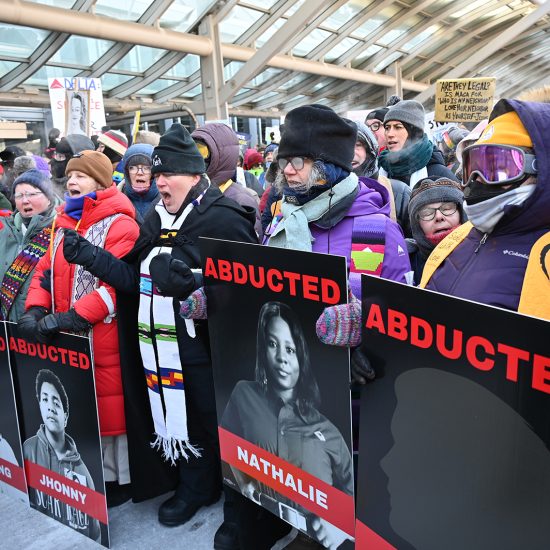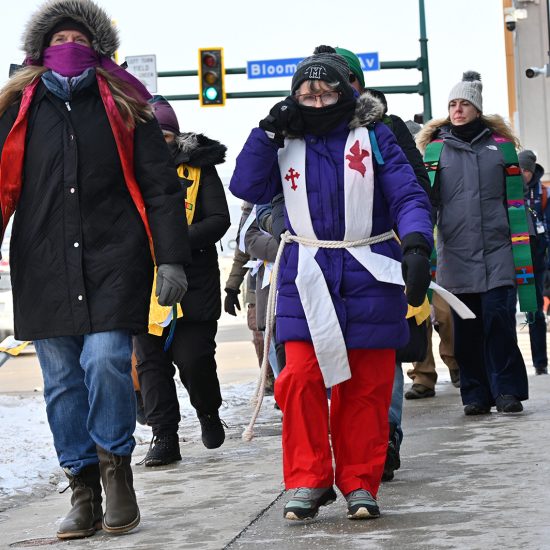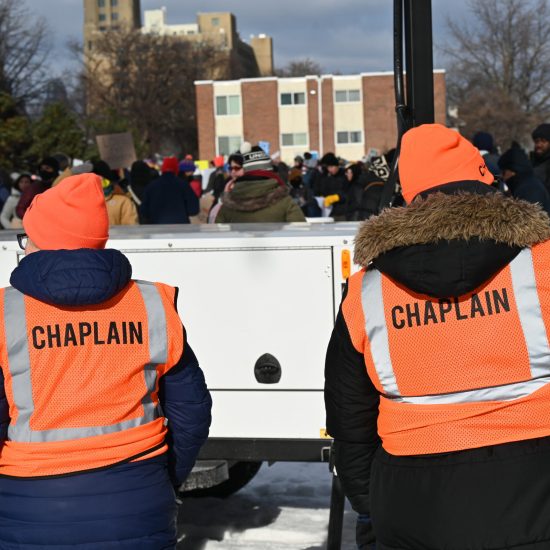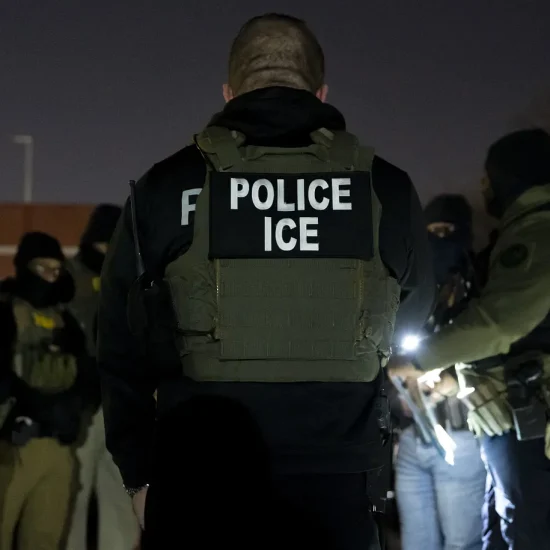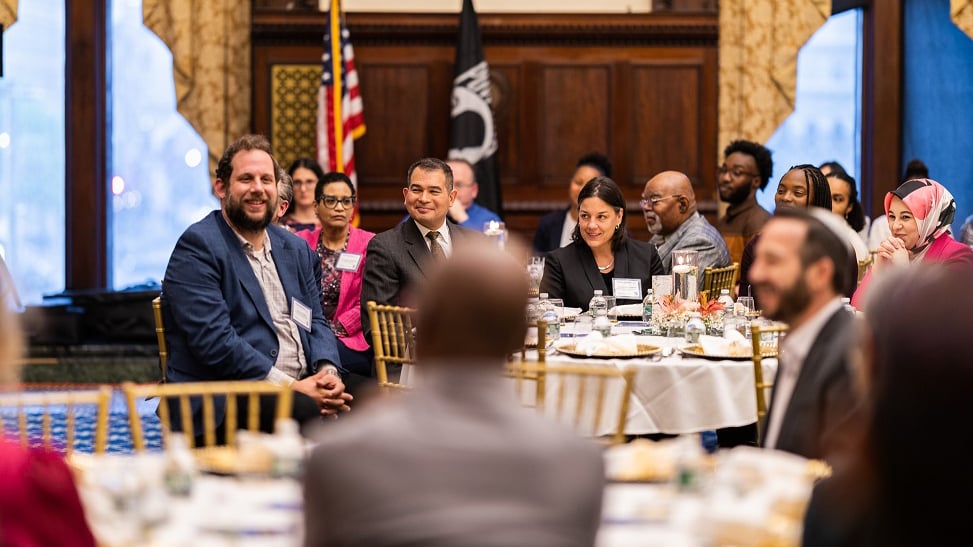
(RNS) — Jason Holtzman and Muhammed Said Selmanlar met in April at an interfaith iftar — the meal eaten to break the daylong fast during the Muslim observance of Ramadan — at Philadelphia’s City Hall and struck up a friendship. When Selmanlar’s wife took a job in New York this summer, Holtzman helped Selmanlar explore towns across the river in New Jersey where the couple might relocate to split the commute.
When the news broke of Hamas’ Oct. 7 surprise terror attack in southern Israel, one of the first people Holtzman, director of Philadelphia’s Jewish Community Relations Council, heard from was Selmanlar.
“I said, ‘Look, what’s happening now, it’s probably going to get worse and worse and I’m so afraid; I’m so worried about hate happening in our community, especially, anti-Jewish and anti-Muslim hatred,’” said Selmanlar, executive director of Peace Islands Institute Pennsylvania, a nondenominational organization founded by Muslims inspired by the teachings of the Turkish Islamic scholar Fethullah Gulen.
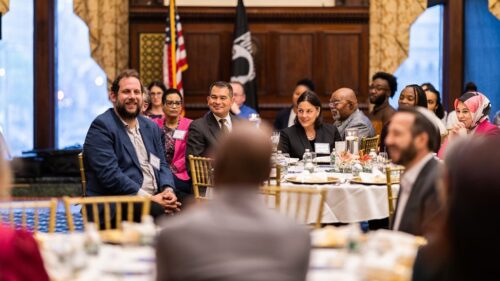
Jason Holtzman, left, attends an interfaith iftar with many religious leaders and government officials at Philadelphia City Hall on April 20, 2023. (Photo courtesy of PIIPA)
Relationships like Selmanlar and Holtzman’s have helped to sustain ties across all of the metropolitan area at a time when Philadelphia’s Jewish and Muslim communities in particular are suffering a spike in antisemitic and Islamophobic incidents. (In one week in late December, 13 Jewish sites across Philadelphia received bomb threats.)
“On Oct. 7, I heard from Christian and Muslim community leaders expressing sorrow about what had happened, checking on me to make sure if I was OK, personally. And since then, we have received plenty of support from members of the non-Jewish community,” said Holtzman.
After they spoke, Selmanlar and Holtzman convened a group of about 15 Jewish and Muslim community leaders to discuss a path forward.
“There’s a lot of work to do, and these conversations that we are having are extremely sensitive,” said Holtzman. “But we have brought the group together to talk about the rise of anti-Jewish and anti-Muslim bigotry and what we can do in our own community, in Philadelphia and the greater Philadelphia area, to push back against some of the hate.”
The group, composed of both clergy and laypeople, including those who have direct ties to the war zone, has yielded conversations that are personal and emotional. Even so, said Selmanlar: “It’s gone even better than we thought. Although the topics we discuss are really tough, the good intention is there. And therefore, we are trying to build our relationships better, so we can help build something better for our community.”
Another faith leader Holtzman heard from was Pastor Carl Day, of Culture Changing Christians, a ministry focused on combating gun violence, homelessness, and mass incarceration in inner-city Philadelphia. The two have been in touch since May, when Holtzman reached out to express interest in Day’s anti-gun violence advocacy. Their first meeting lasted close to five hours as they discussed their communities’ shared interest in social justice work and the historical partnership between the city’s Black and Jewish communities.
Soon after, Day and Holtzman organized an interfaith group where Jewish people and Black Christians could come together to share, learn, and advocate on important issues together. The group has been running since June.
Two days after Hamas attacked, Day spoke at a “Philly Stands With Israel” rally, hosted by the Jewish Federation of Philadelphia. Ten days later he appeared at a meeting of the Philadelphia City Council to support a resolution condemning the attack. The resolution passed unanimously.
Like the Muslim-Jewish group, members of the JCRC-CCC group have not shied away from hard conversations about the conflict in Israel and Gaza. They’ve come together for “nothing’s off the table” discussions. Day credits their honesty to the fact that the partnership existed before the war broke out.
“In some ways, it was prophetic, us coming together and already building beforehand,” said Day. “The Hamas attack just happened to come about after we’d already been organizing. I think that that’s another thing that really makes what we’re doing unique.”
But as the war continued, some felt the need for an event that would provide balm for the community as much as open up discussion. Rabbi Erica Steelman, a chaplain at the Horsham Center for Jewish Life, a nursing facility in North Wales, north of Philadelphia, sits on the Interfaith Working Group of the Jewish Community Relations Council, created in response to the ongoing effects of the current Israel-Hamas war.
In November, the working group began organizing a spreadsheet to track JCRC staffers’ and volunteers’ connections to other faith communities. “We were thinking, ‘Could we do something?’” said Steelman. “People were feeling afraid, not supported as Jews, and at a distance from the non-Jewish community.”
On Dec. 10, the fourth night of Hanukkah, Ambler Church of the Brethren, in a suburb next to North Wales, and the Jewish Federation of Greater Philadelphia hosted a Hanukkah menorah-lighting event co-sponsored with the Wissahickon Faith Community Association where the candles flickered in front of a 12-foot-tall Christmas tree on the church’s altar. The roughly 50 clergy and laypeople from Conservative, Reform and Reconstructionist Jewish congregations and Baptist, Mennonite, and Lutheran churches joined together to sing, pray, and eat.
Steelman called the gathering a “Hanukkah miracle” at a time when many Jewish people felt they needed to hide their Jewish identity.
To continue the city’s interfaith work, Holtzman and Selmanlar have discussed bringing Young Peace Builders, developed by the Peace Institute’s New York chapter, to Philadelphia. The program provides Christian, Muslim, and Jewish teenagers the opportunity to learn about each other and work together on a community service project. Introducing young people from different faiths is key in creating successful partnerships, according to Selmanlar.
“It’s important to start the exposure, start the empathy, start seeing the similarities, and after that, maybe they are also able to start seeing the differences as beauty, as our richness,” he said.
Meanwhile, last month, Day and Holtzman’s group carpooled to Harrisburg, the state capital, to advocate at the state level against gun violence.
“We really believe that we’re much stronger together,” said Day. “It’s one thing if you’re just going up there representing yourself, as members of the African American community, or members of the Jewish community. But when communities can team up and show we’re not only just advocating for our own issues, but we see the bigger issues at hand for all people, those things really create a greater avenue for change.”
There has also been collaboration between Selmanlar and Rabbi David Straus, rabbi emeritus of Main Line Reform Temple in Wynnewood, Pennsylvania, and co-convener of the Religious Leaders Council of Greater Philadelphia.
Founded in 2006 to “build relationships of mutual support,” the organization includes more than 30 local faith leaders and is connected to Interfaith Philadelphia, which recently hosted its own workshop on the war called “Navigating Difficult Conversations About the Middle East.”
Selmanlar, who is from Turkey, invited Straus recently to lunch at Paprica Grill, near the Liberty Bell. Over a traditional grilled meal and kunefa for dessert, they discussed the possibility of organizing a Muslim, Jewish, and Christian community trip to Andalusia, Spain, a city with a rich interfaith history.
Straus cited what he thinks are the two most important decisions made by the Jewish-Muslim dialogue group: “We’re not going to allow the ‘crazies’ in both of our communities to do crazy things.
“And no matter what happens in a region far from here, that is near and dear and important to all of us, we need to be neighbors, and we want to be neighbors, and we need and want to live in community together.”

